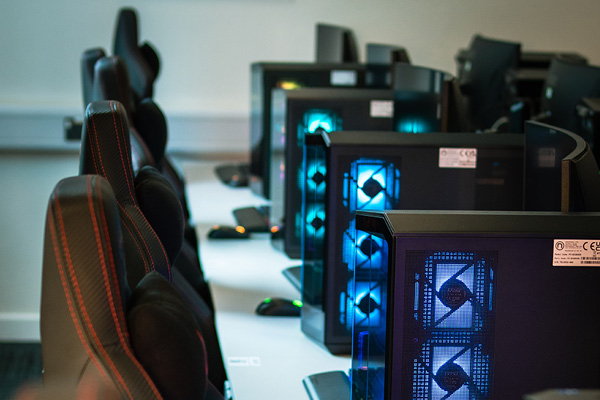Module Overview
This module introduces cutting-edge topics in games research areas, including both theory and practical applications. The module will follow a research seminar format, involving input from colleagues across the School of Computer Science and other Schools at Lincoln. Additionally, guest lectures from industry representatives and leading international researchers will be offered. Topics will include technical aspects, user experience, design, serious games, and games studies. Students will further benefit from opportunities to discuss potential research topics that they can explore to build and enhance their research and critical thinking skills.
Module Overview
This module aims to explore advanced topics using a contemporary object-oriented programming language. The objective is to prepare students for professional-level programming in scientific and commercial computing, and to support programming tasks in other modules of this award.
Students can explore a range of programming topics through a series of lectures and practical workshops, and will work on producing an individual programming assignment.
Module Overview
This module is an introduction to game development, guided by the industry experience of lecturing staff, and underpinned by theoretical considerations from game design and player experience, to deliver an industry-relevant experience of building and evaluating game concepts.
Module Overview
This module is designed to cover the fundamental skills and background knowledge that students need to undertake research related to the title of the award being studied, including: surveying literature; selecting and justifying a research topic; planning of research; selection of appropriate research methods; evaluation of research; presentation and reporting of research; and legal, social, ethical and professional considerations.
Module Overview
This module presents students with the opportunity to carry out a significant inquiry-driven research project, focusing on a topical area of interest that is aligned with their programme of study. This is primarily realised through the development of a dissertation and substantive research and/or software implementation output.
The research project is an individual piece of work, which enables students to apply and integrate elements of study from a range of modules, centred on a specific research question. The student will undertake work that is relevant to the ongoing research in either one of the established research centres within the School of Computer Science or through the development of a project concept in consultation with their allocated academic supervisor.
Module Overview
This module aims to provide students with an understanding of advanced concepts of software engineering principles and practices. The course focus on developing the skills necessary to design and deploy sophisticated modern software systems in a range of application areas. You will develop your practical software engineering skills and learn new theories of software development.
Module Overview
On this module students can learn about emerging Virtual and Augmented Reality platforms from both design and development perspective. Students will have the opportunity to design, build and evaluate their VR and AR apps using state-of-the-art platforms.
Module Overview
This module explores the various conceptual tools that can be applied to the games design process. The module will be broadly split between theory and practical applications, contextualised against both commercial and academic applications. Students will be encouraged to develop as reflective design practitioners, through critiquing their own designs and those of their peers.
There is a specific focus on the design pipeline, starting from requirements gathering, through conceptualisation and prototyping, to evaluation and iteration. Students will learn various methods to help them tackle the specific challenges at each stage in this process. The module is grounded in practical experimentation, and student-centered exploration of the module themes. Through this module students will develop an understanding of the interplay between the different components and mechanics of a game, and how small changes can impact the gameplay experience.






